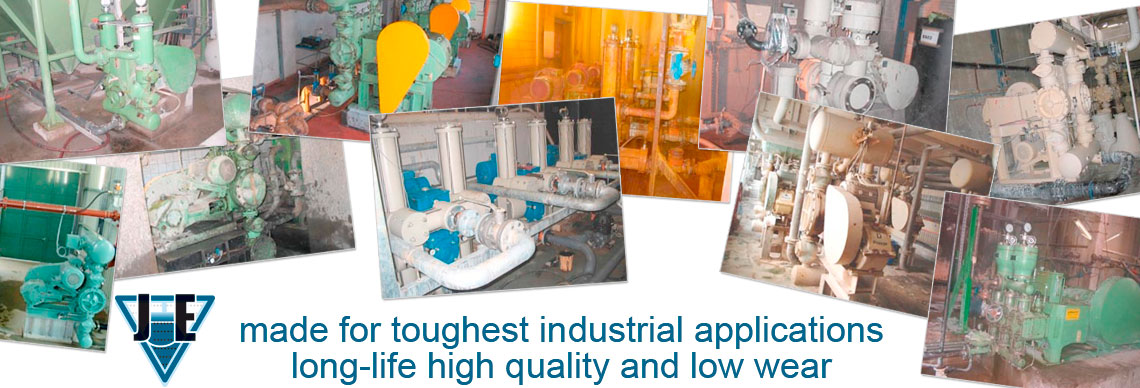
Application areas
- abrasive and highly viscous slurries with a high concentration of solids (e.g. flotation slurry, oxide slurry, coal slurry, metallic hydroxide slurries, kaolin and cement slurry, clay slurry, ceramic muck)
- ore slurries (e.g. copper-nickel slurry or bauxite suspensions)
- media used in the chemicals industry, such as pigment fluffs, latex, acids, lyes
- products in the food-processing and pharmaceuticals industries
- as process pumps and for hydraulic transport of solids in reactor charging
- for charging filters in the field of effluent treatment technology (local authority and industrial waste slurry)
- feeding of spray dryers
- red mud treatment in the aluminium industry
- feeding of coal-to-gas plants
- feeding in flue gas desulphurisation plants
Feeding of filter presses
Chamber filter presses result in the best separation results for sludge drainage in various industrial applications. An economical drying of the slurries is possible especially with large-volume presses of robust construction.
Hydraulic piston diaphragm pumps are especially suited for feeding the filter presses, because the press is filled at the beginning of the filter process with great amounts at low pressure. Then filtering is done with small amounts and great pressure. The piston diaphragm pump adjusts itself automatically to the operational conditions dictated by the filter press.
Hydraulic transport
Numerous industrial processes require the transport of a fluid media over greater distances. For tube digestion in aluminium production for example, a strong alkaline and abrasive suspension is pumped at a temperature of about 80 °C against a digestion pressure of 80 to 120 bar.
Such processes can be only realised economically by piston diaphragm pumps.
